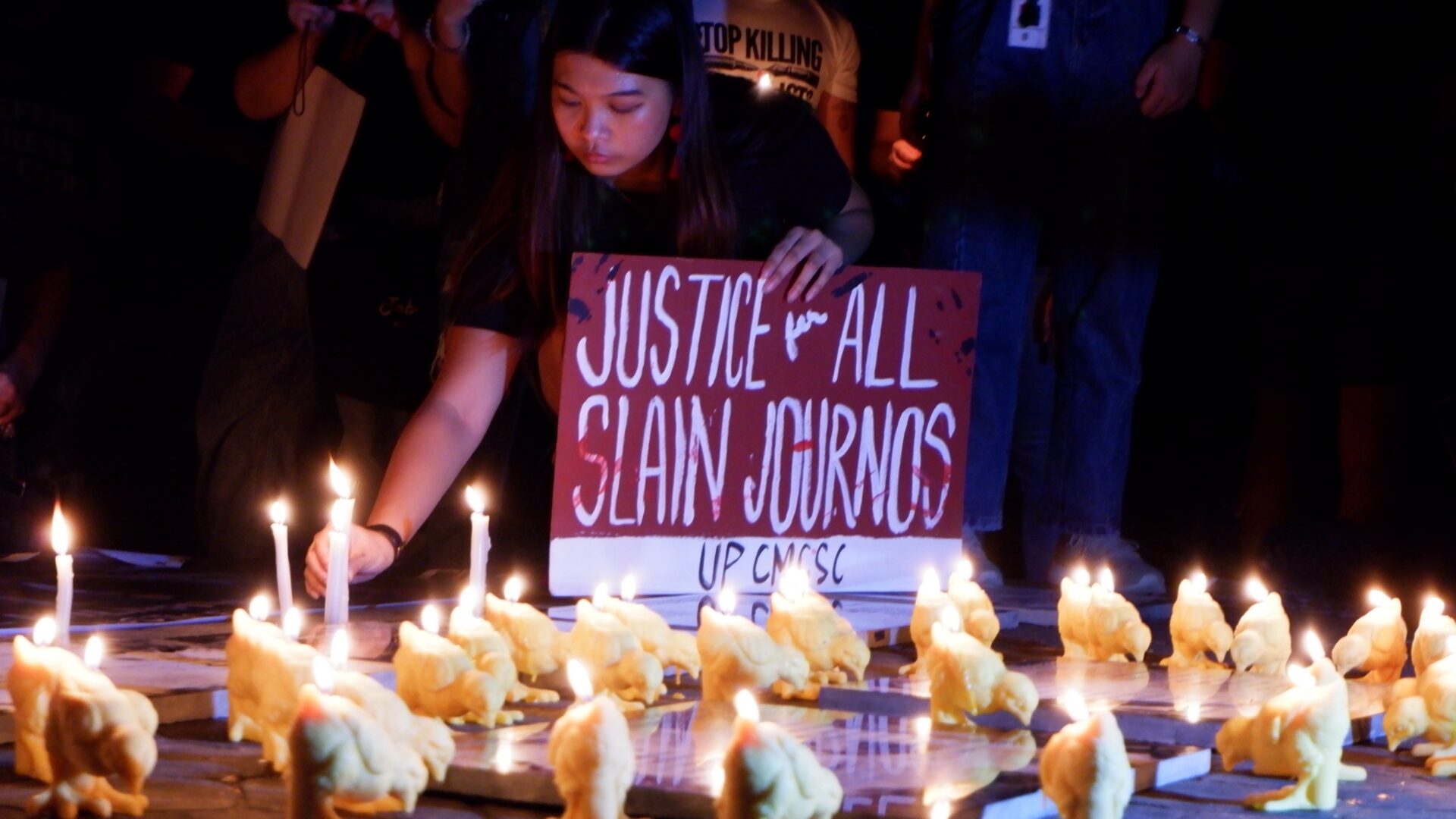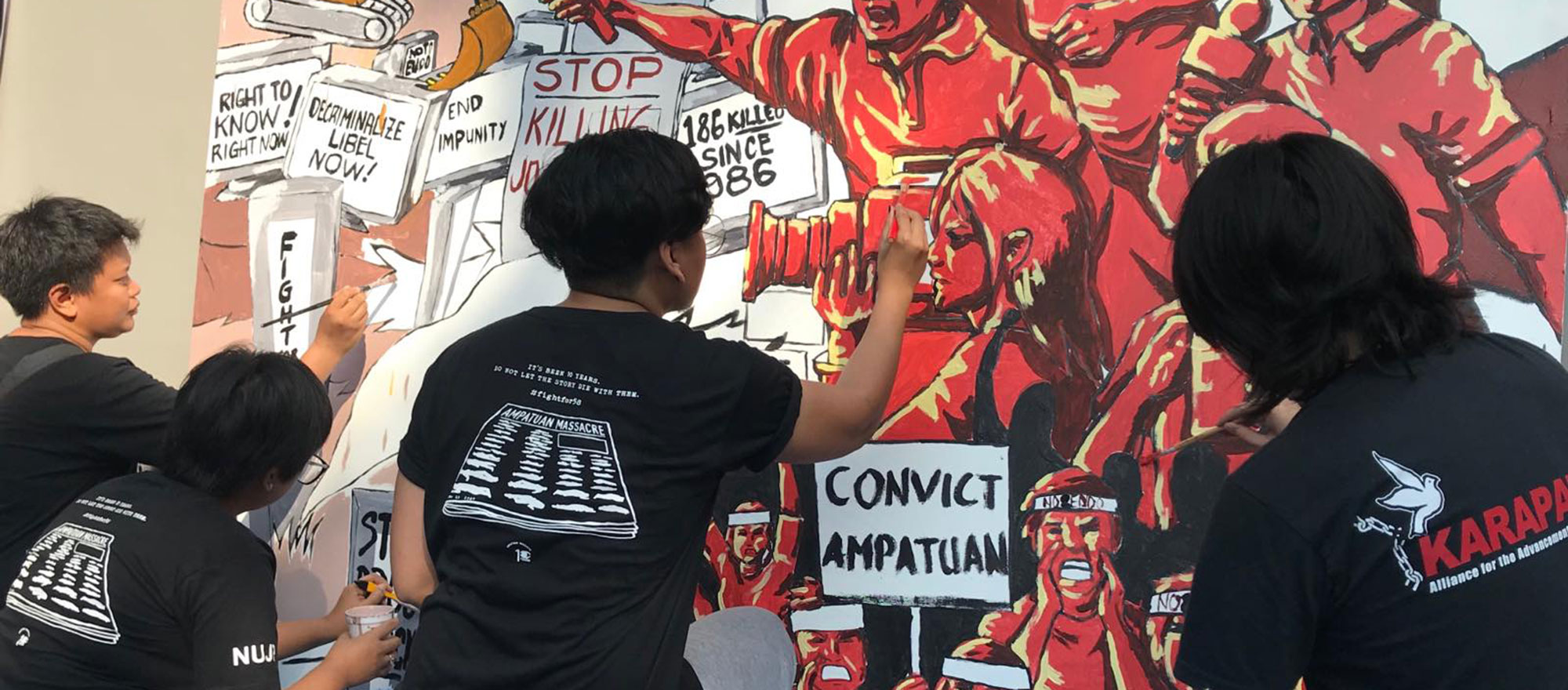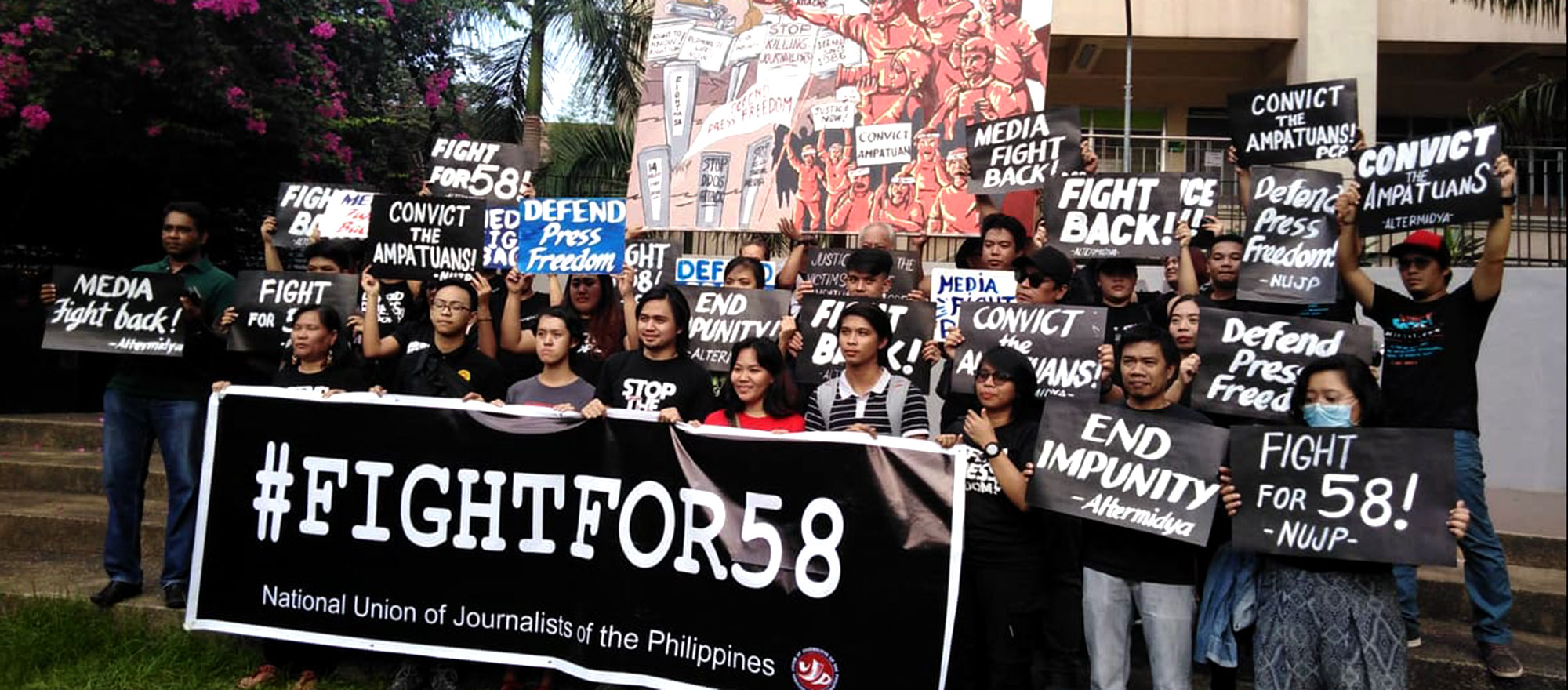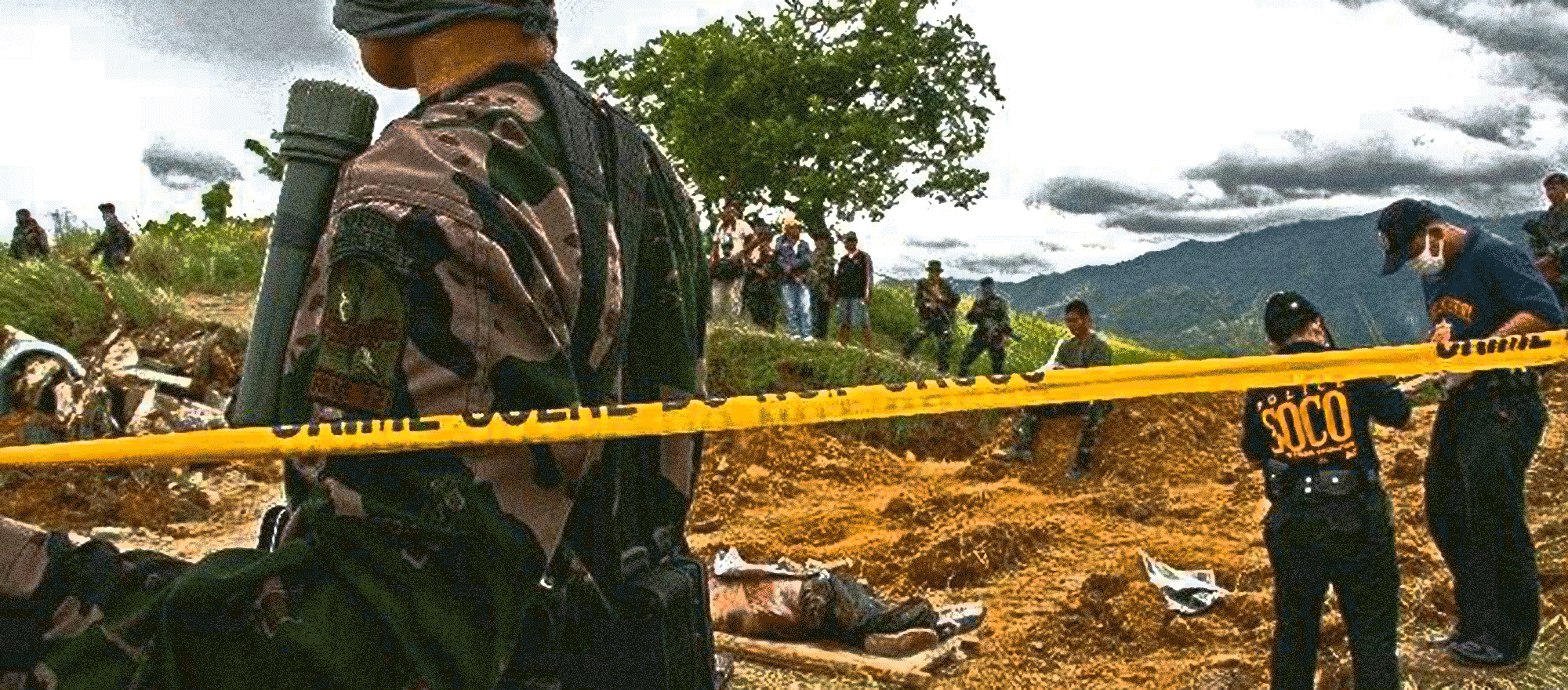To the 58 victims on their 58th month
It has been 58 months now since you were mercilessly murdered at Ampatuan town in Maguindanao on November 23, 2009. Thirty two of you were journalists and media workers. I was a journalism freshman then and it made me think if I should still pursue journalism. After that bloody incident, I was seriously considering shifting […]
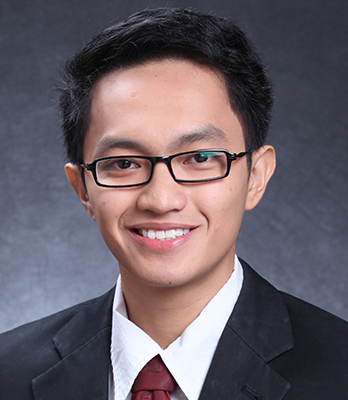
It has been 58 months now since you were mercilessly murdered at Ampatuan town in Maguindanao on November 23, 2009. Thirty two of you were journalists and media workers. I was a journalism freshman then and it made me think if I should still pursue journalism.
After that bloody incident, I was seriously considering shifting my major. Of course, I was afraid that it might happen to me in the future. But I stayed and finished my journalism degree.
It made me ask: Why are journalists getting killed in the Philippines?
I wasn’t able to get the answers inside the four corners of a classroom. I got the answers through reading and discussions with people in the media and human rights advocates. The fear I felt at first became the driving force for me to continue advocating for press freedom and human rights.
We have a different situation compared to Iraq, where journalists are often caught in crossfire. You were killed because of political ambition, the feud between political families fighting over power and control. They maintain the use of private armies to protect their political interests. A paramilitary group of the Ampatuan clan was ordered to massacre you. The country has warlords with active private armies, a clear manifestation of a backward semi-colonial and semi-feudal Philippine society.
You were there to get a story for your respective media organizations. You were just practicing your profession. But you were ruthlessly slain, stripped of your dignity as human beings. Animal slaughter can be considered even more humane compared to what they did to you.
They say we are in a democracy where we enjoy freedom of the press, of speech and of expression. These rights may not be absolute, but that does not mean that the powerful can just shoot us just because they don’t agree with our opinions and views.
Journalists, as well as community leaders and activists, are being incarcerated, abducted and killed just because they are seeking the truth and a better society.
I would like to tell you a story about President Noynoy Aquino, who promised to bring you immediate justice while campaigning for presidency last 2010. In a human rights forum in Belgium during his European tour last week, Noynoy said that not all media killings are related to the job. Would you agree with that? I can certainly say that you probably won’t.
Furthermore, President Aquino has been repeatedly criticizing the media for their negative reporting on his government. In the light of issues of graft and corruption in the bureaucracy under his leadership, the media has the responsibility to bring deliver news and information to the public. As the National Union of Journalists of the Philippines (NUJP) said in its statement, the media are not the President Aquino’s cheering squad.
After your demise, there were many others who were slain.
According to the Center for Media Freedom and Responsibility (CMFR), there are actually 29 media killings after Ampatuan Massacre and 25 media killings as of this writing under President Aquino’s administration. Noynoy exceeded his mother President Cory’s record of 21 media killings during her term. Of the 25 journalists killed under Noynoy, one of the most recent was shot inside her home in front of her son.
In addition to that, 145 media killings were documented since the so-called restoration of “democracy” in the country in 1986. But only 14 out of these murders have convictions.
The trial of your case hasn’t significantly progressed as your death is now approaching its fifth year in less than two months. And yet again, the police and court barred the media from covering the proceedings of the trial last September 17 on the grounds that the courtroom was full at that time, and that the first defense witness was a minor, the 17-year-old daughter of former Autonomous Region for Muslim Mindanao (ARMM) governor Zaldy Ampatuan.
Speedy trial is a constitutional guarantee, but the proceedings are snail-paced. Considering the Philippine justice system, the trial might go on for eons.
As a young activist-journalist, it worries me that journalists, even ordinary people, are being killed for their political standpoint and beliefs.
There can be no genuine justice for you, the victims, if the culture of impunity continues to reign and until the government is not sincere in resolving the cases of human rights violations and in putting the perpetrators of these crimes behind bars.

